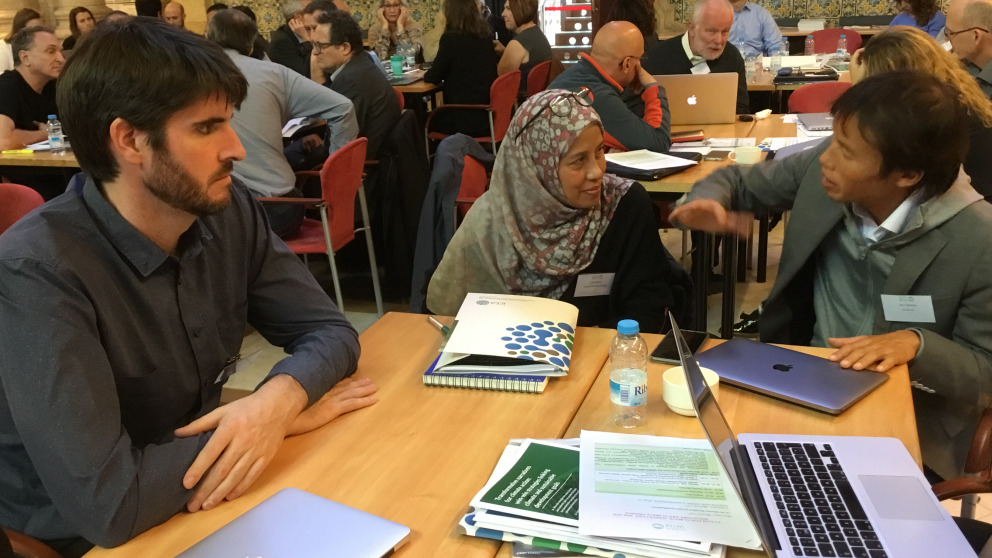Making Small and Medium-Sized Enterprises Drivers of Green Growth: Recommendations for Politics and Business
12.02.2019
“Green growth” promises to foster sustainable development while promoting economic prosperity and advancing social justice. But how does this work in practice? The EU-funded research project “Green Growth and Win-Win Strategies for Sustainable Climate Action” (Green-Win) has studied a range of green growth strategies. Its research results include a new guide to green business models and policy recommendations to foster green growth and support small and medium-sized enterprises.

The research team organised workshops for green investors and entrepreneurs in Germany, Austria, Switzerland, Spain, Mexico, Colombia, Brazil, Rwanda, South Africa and the Philippines. “The entrepreneurs learned to assess their business models, their financial expectations and the sustainability impacts of their projects from an investor’s perspective,” reports Armin Haas, who led a team of IASS researchers implementing one of the work packages. Through these workshops, the project identified a need for more “matchmakers”. These individuals play an important role in promoting green growth by bringing investors and entrepreneurs together.
Clear regulatory environments and favourable market conditions: Policy paves the way for green growth
The “Short Guide to Developing Green Business Models” is aimed at entrepreneurs, researchers and organisations working with green entrepreneurs. It offers valuable guidance on developing and presenting business plans to potential partners and investors. The policy brief “Enabling Environments for Green SMEs: Recommendations for Action” provides practical recommendations for policymakers at the international, national and local levels.
Politicians can play a key role in ensuring that small and medium-sized enterprises make the transition to the green economy, explains IASS researcher Haas: “This is more challenging for SMEs than for large corporations, which operate with far greater human and financial resources. Our discussions with green entrepreneurs and investors revealed that a clear regulatory environment, favourable market conditions for environmentally-friendly products and services as well as better access to financing and capacity-building programmes can help small and medium-sized enterprises.” Germany’s sustainable energy transition is an outstanding example of how modifying the environment in which businesses operate can pave the way for successful green business models.
A culture of innovation and participation helps green technologies to succeed
In order to assess where and under what conditions green technologies work in practice, the researchers combined economic approaches targeting various levels – from individual companies to economic sectors and entire national economies. Their finding: Most successful ventures are based on bottom-up approaches driven by a distinctive culture of innovation, participation and feedback. However, the details differ depending on the type of actor, goals, and respective regional context. In other words, there is no magic formula that will guarantee results: Green growth strategies must be attuned to the local financial and social system and continue to evolve with it.
Further information: